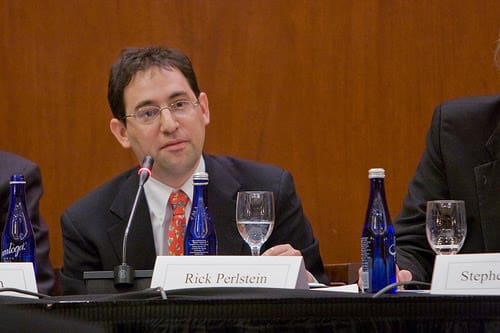

It’s only 1980 at that point, but you can already see the formation of a paranoid new worldview - one astonishingly cynical about the promise of government and eager to accept myths about America. The book ends with the inauguration of Ronald Reagan, the former actor and onetime General Electric pitchman. Perlstein’s most recent tome, 2020’s Reaganland: America’s Right Turn 1976–1980, covers the formation, more than forty years ago, of a new Right, as the nation cast aside the social-welfare strategies of the New Deal for an extreme (and often self-defeating) individualism. The Los Angeles Times awarded him its Book Prize in History, and neoconservative commentator William Kristol hailed it as “an amazing story,” done justice by a “man of the Left.” In 2001 Before the Storm: Barry Goldwater and the Unmaking of the American Consensus won rare raves from both conservative pundits and the progressive cognoscenti. His breakthrough 1996 Lingua Franca essay “Who Owns the Sixties?” helped him get an agent and a grant from the National Endowment for the Humanities.

After receiving his history degree from the University of Chicago, he pursued graduate work at the University of Michigan, receiving an MA in American Studies. Raised in Milwaukee, Wisconsin, in a Reform Jewish family, Perlstein became obsessed with the sixties while sifting through old magazines in the basement of that city’s Renaissance Books. Over the past two decades the fifty-two-year-old has become a prominent chronicler of America’s rightward shift, charting the tectonic movements beneath the surface to show how today’s political divisions are the unmistakable aftershocks of earthquakes long ago. His four volumes on the rise of modern conservatism have traced our cultural fault lines from the failed Republican presidential bid of Barry Goldwater in the 1960s to the success of Ronald Reagan in the 1980s. A uthor and historian Rick Perlstein is a seismologist of the chaotic American political landscape.


 0 kommentar(er)
0 kommentar(er)
